
MENUMENU
TALK TO AN EXPERT
Special Hours: 7AM – 6PM PST
TALK TO AN EXPERT
Special Hours: 7AM – 6PM PST
As it becomes increasingly difficult and expensive to get a campground reservation, many RVers are opting to boondock and forego hookups. While boondocking offers unbeatable views and more privacy, not having hookups can pose several challenges. Without an upgraded power system, running some loads overnight can leave an RVer with a dead battery in the morning. Depending on the type of RV battery, this could cause permanent damage. Although the possibility of a dead battery is scary, proper system upgrades and the right RV batteries can keep you powered all night!

Typically, most RVers choose not to run their generators all night as they create excess noise and use valuable resources. This means they must rely on reserve power from their RV batteries to run essential loads. Without an outside power source, it’s up to the RV batteries to provide all the power that could possibly be needed at night. Running lights, a furnace or AC, a fridge, or even a water pump overnight will quickly drain RV batteries. Even for RVs equipped with solar systems, the lack of excess energy when the sun goes down leaves the RVers reliant on their batteries to get them through the night.
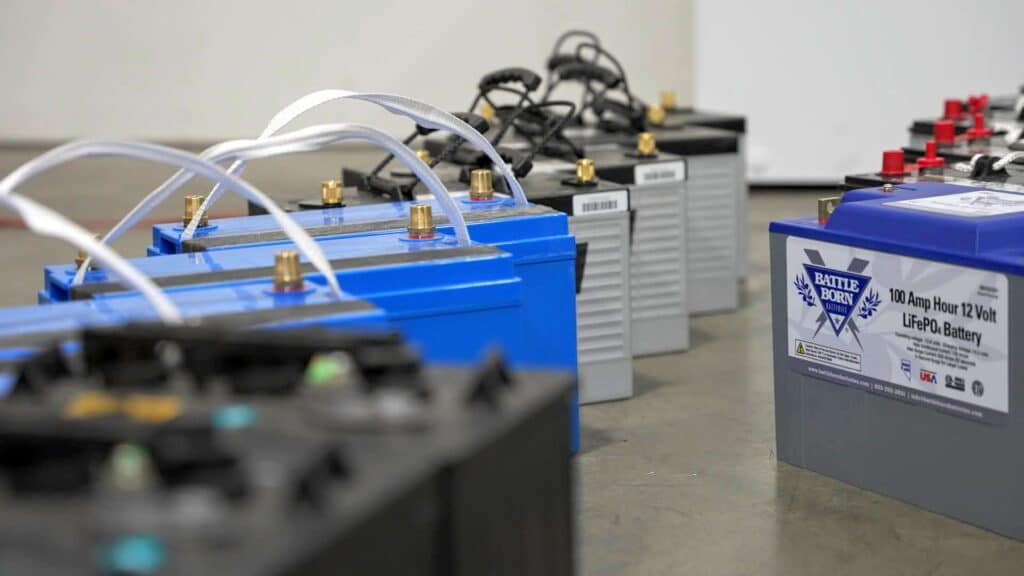
Even if you use as little power as possible to conserve battery capacity at night, parasitic loads can unknowingly drain your RV battery. Parasitic loads reference the electrical draws from appliances that continuously suck power from your RV battery when you’re not connected to a power source. Items like carbon monoxide detectors and other electronics with lights or display screens can be parasitic loads.
Without managing your parasitic loads, you could wake up to discover that you’ve used more of your battery than you intended. With a lead-acid system, this could cause a lot of damage to your batteries. Minimizing parasitic loads in your RV can protect your batteries and help prevent your battery from draining overnight.
Most RV batteries should be able to last through the night with standard loads on them. If your batteries aren’t lasting through the night, there is a good chance they are damaged. This is especially true for lead-acid batteries. If they are drained past 50% of their capacity, they can be significantly damaged, giving them a much shorter lifespan.
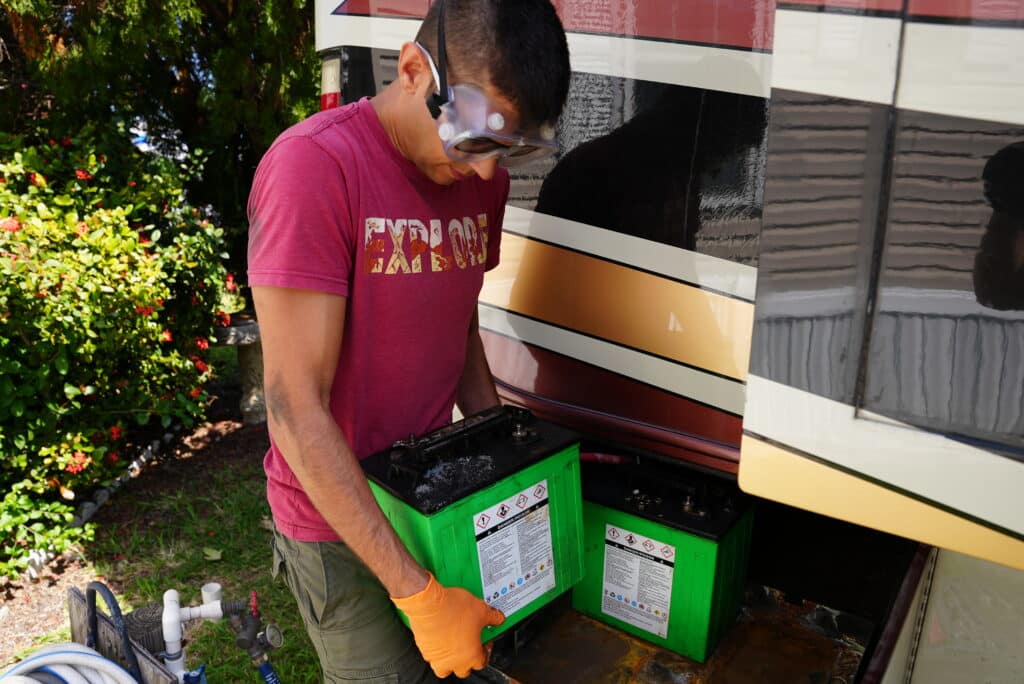
The best way to prevent your RV battery from going dead overnight is to minimize the power you are using in your RV. Avoiding leaving lights on that are not in use, unplugging electronics after using them, and using propane to run large appliances can help your RV battery last through the night.
In addition to cutting down on power usage, proper maintenance can ensure your RV battery is able to perform optimally. If you have lead-acid batteries, monitoring and maintaining the electrolyte levels is essential for preventing irreversible damage that can significantly limit their operating capacity.
Another way to prevent damage to your RV batteries is to avoid discharging them too deeply. Lead-acid batteries typically can’t go below 50% of their capacity without risking permanent damage and significantly decreasing their life. The more often this occurs, the smaller the battery’s total capacity becomes and the faster it drains. Additionally, this is compounded by the battery’s capacity reducing as it ages. The older your lead-acid battery is, the more quickly it will die and the less likely it will last through the night.
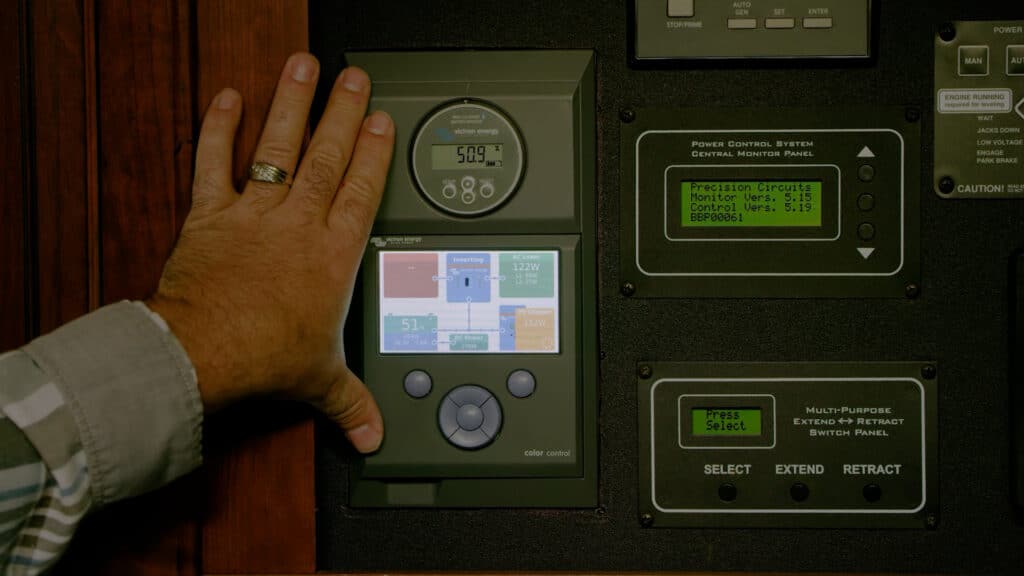
Unfortunately, many RVers end up damaging their batteries through no fault of their own. Lead-acid battery manufacturers do little to educate their users on the proper maintenance and care required for lead-acid systems. And most RVs don’t come with an accurate battery monitor to keep an eye on their state of charge. Additionally, lead-acid batteries do not have internal systems that help prevent damage automatically. These factors make it much more common for lead-acid batteries to die overnight.
How long an RV battery can hold a charge depends on how much power you use. Most RVs come with a 100 Ah lead-acid battery. These batteries are typically able to power the bare essentials (lights and water pump) in an RV for approximately 24 hours. However, discharging a lead-acid battery below 50% capacity will cause permanent damage to the battery and drastically reduce how long it can hold a charge.
An RV’s battery will also provide small amounts of power to propane appliances like refrigerators and furnaces. As a result, the more frequently these appliances run, the more power they’ll require. If you’re camping in cold weather, your furnace will use a generous amount of power, and as a result, you’ll notice your battery doesn’t last nearly as long. If you find your RV battery draining more and more overnight, it may be time to replace and upgrade your battery system.
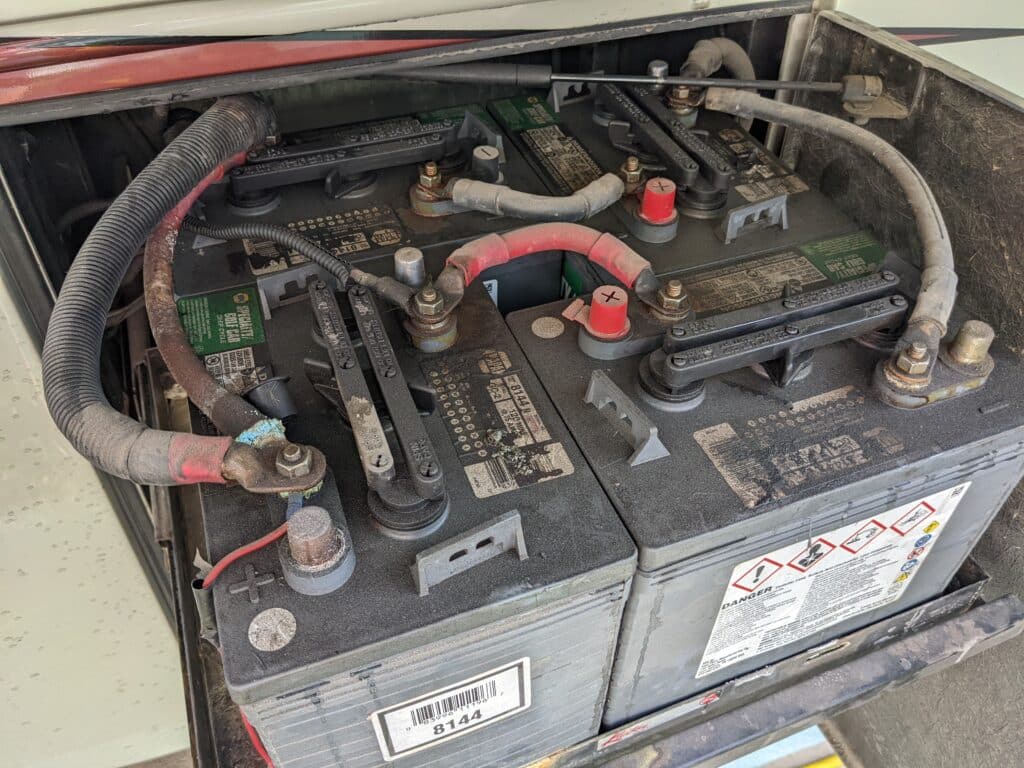
If you’ve run into capacity and longevity issues with your lead-acid batteries, it may be time to upgrade to lithium-ion batteries.
Deep-cycle lithium batteries last 5 to 10 times longer than comparable lead-acid batteries and lose minimal performance as they age. Offering a much deeper depth of discharge, lithium batteries can provide more power for longer periods of time than lead-acid batteries. While lead-acid batteries will experience irreversible damage when discharged below 50%, lithium batteries can be continually discharged to nearly 100% with no long-term effects.
Although a typical lead-acid battery can only withstand a maximum of several hundred cycles, lithium batteries can last between 3,000 to 5,000 discharge cycles, providing reliable power for years to come.
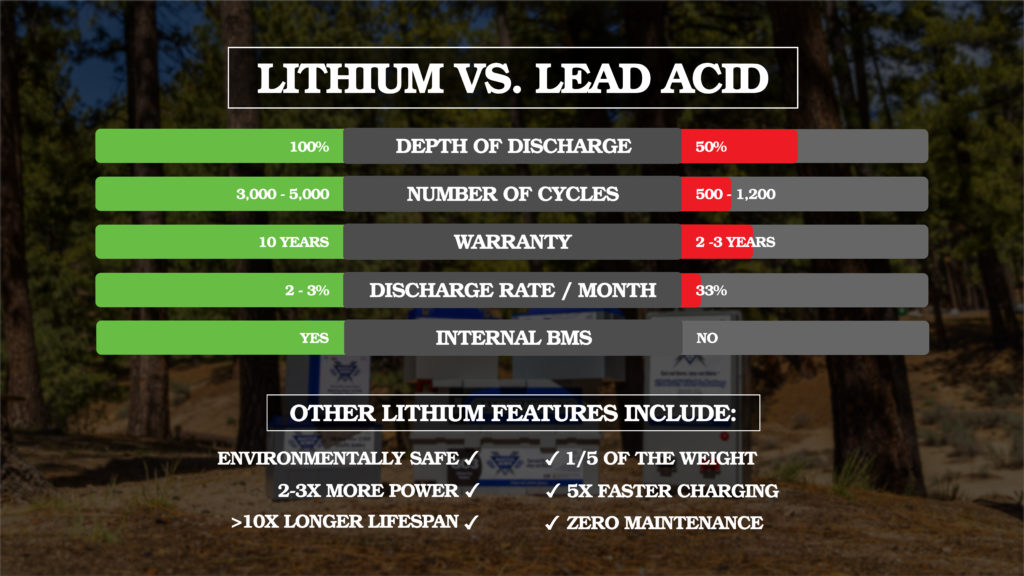
When used in an RV, lithium batteries provide twice as much power as standard lead-acid batteries. Upgrading to lithium batteries allows you to worry less about causing permanent damage to your battery bank, even while powering essential loads all night long.
While managing your power usage is always important when RVing, lithium batteries require minimal maintenance and can be discharged all the way down to zero percent battery capacity. Additionally, Battle Born Batteries have a smart internal BMS that will turn off the batteries long before they ever come close to damaging themselves.
In addition to providing more power, the lifespan of a lithium battery is years longer than a lead-acid battery. At Battle Born Batteries, we offer a 10-year warranty on our batteries, while a typical lead-acid battery will likely only come with a year or two of warranty coverage.
If you’re an RVer who prefers hookups, you might not think upgrading to a lithium-ion battery would be worth it. However, if you find yourself worrying about your RV battery draining overnight, wanting the option to park without hookups, or even just wanting to stop replacing your lead-acid batteries every season, lithium-ion batteries are the perfect upgrade. Especially if you want to maximize the boondocking capabilities of your RV and see the limitless possibilities that a lithium-ion system can provide.
Our lithium-ion batteries are much safer as they do not produce any toxic fumes, unlike lead-acid batteries. In addition, the materials used in our batteries are nontoxic and much safer for human health.
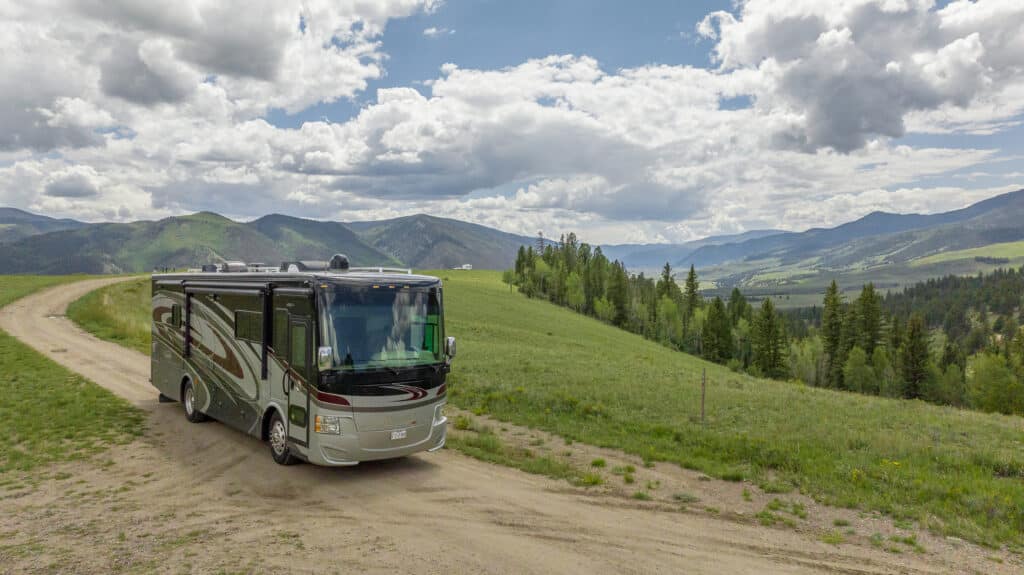
With twice as much power, a much longer lifespan, and half the weight of lead-acid batteries, lithium batteries are the perfect solution for RV power. A typical 100 Ah lead-acid battery weighs 60 to 70 pounds, whereas a lithium battery weighs approximately 30 pounds. If you’re planning on adding multiple batteries to your bank, you could save hundreds of pounds of weight in your power setup. The larger the battery bank, the larger the weight savings when you upgrade to lithium.
Whether you’re powering a C-pap machine or other critical devices, having a reliable RV battery is essential. You can sleep well knowing you won’t wake up to a dead RV battery with Battle Born Batteries.
Yes, you can replace your lead-acid RV battery with a lithium battery. Our batteries utilize the same connections and generally have the same dimensions as lead-acid batteries.
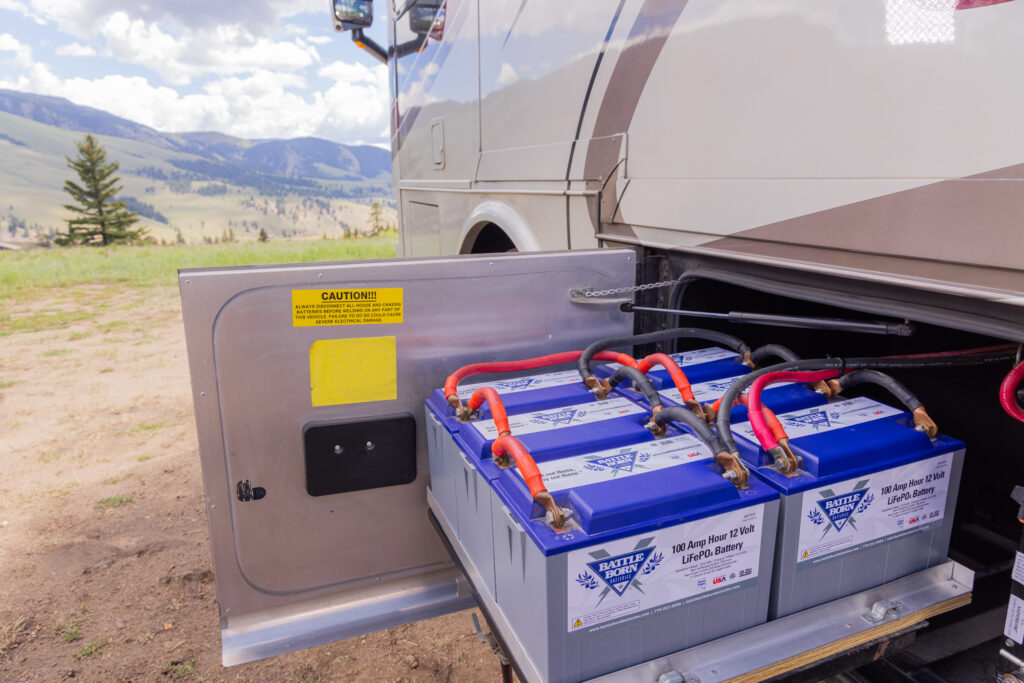
While you can choose to place your new lithium battery in the same location as your previous lead acid battery, lithium batteries offer much more flexible mounting options. Since they don’t have harmful battery acid, they do not require venting. This allows you to skip the small battery compartment and install them in a place where you can add all the battery power you want. Boondocking enthusiasts may install 8 or more lithium batteries with solar systems to camp off-grid just as they would with full hookups.
Depending on your power needs, even just one or two of our Battle Born Batteries can substantially increase your power supply. Many RVers can make minor modifications to their existing setup and drop-in replacement lithium batteries.
Most lead-acid battery chargers offer a setting that works well with lithium batteries if they do not have automatic equalization. However, upgrading to a lithium-specific charger can be beneficial. Lithium batteries can accept a tremendous amount of power compared to lead-acid batteries. A lithium-specific charger allows you to set specific charging parameters and provides more backup safety options to protect your lithium batteries.
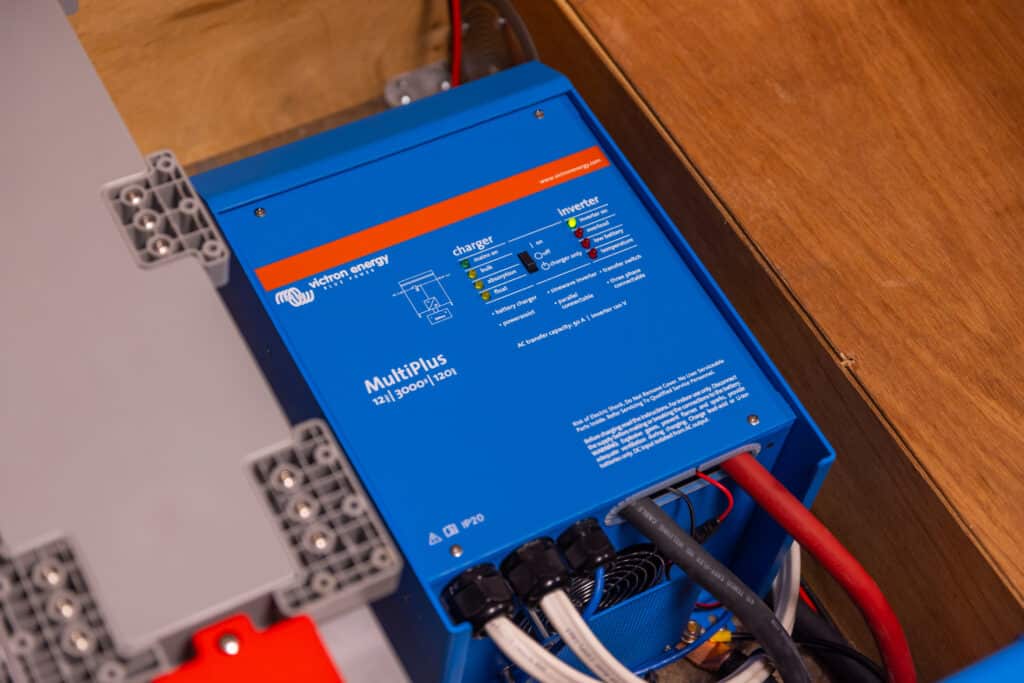
Lithium batteries deliver the biggest bang for your buck when it comes to power solutions for an RV. While they aren’t the cheapest option on the market, they provide a much deeper depth of discharge and thousands more discharge cycles. If you’re tired of camping in crowded campgrounds and want to enjoy boondocking or simply have worry-free power, upgrading to lithium will be a gamechanger.
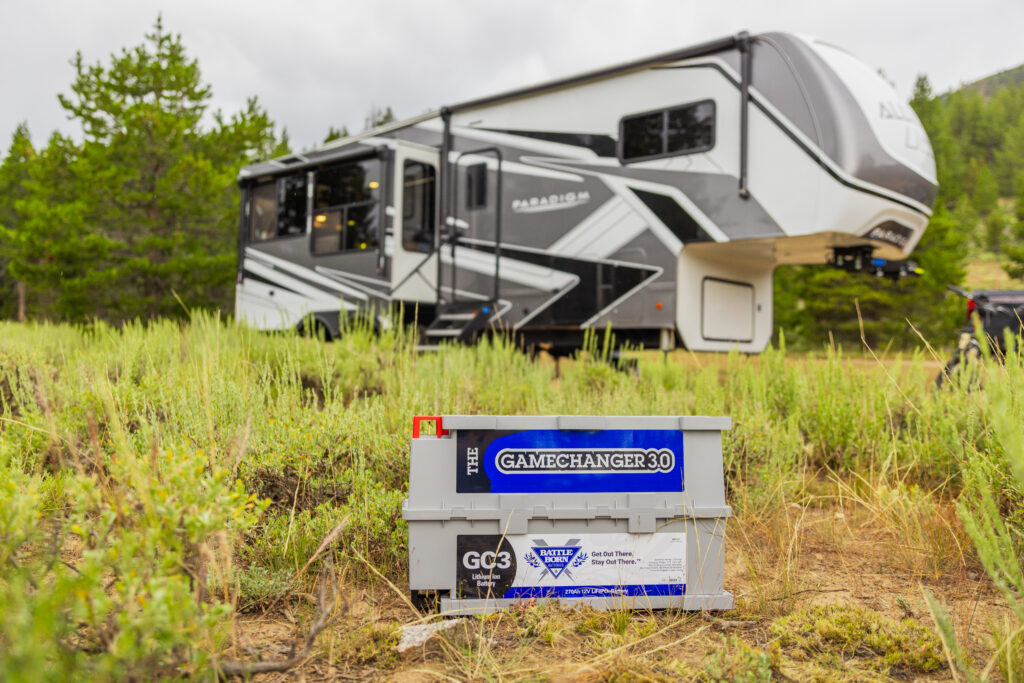
We know that building or upgrading an electrical system can be overwhelming, so we’re here to help. Our Reno, Nevada-based sales and customer service team is standing by at (855) 292-2831 to take your questions!
Also, join us on Facebook, Instagram, and YouTube to learn more about how lithium battery systems can power your lifestyle, see how others have built their systems, and gain the confidence to get out there and stay out there.
Shop Best Sellers

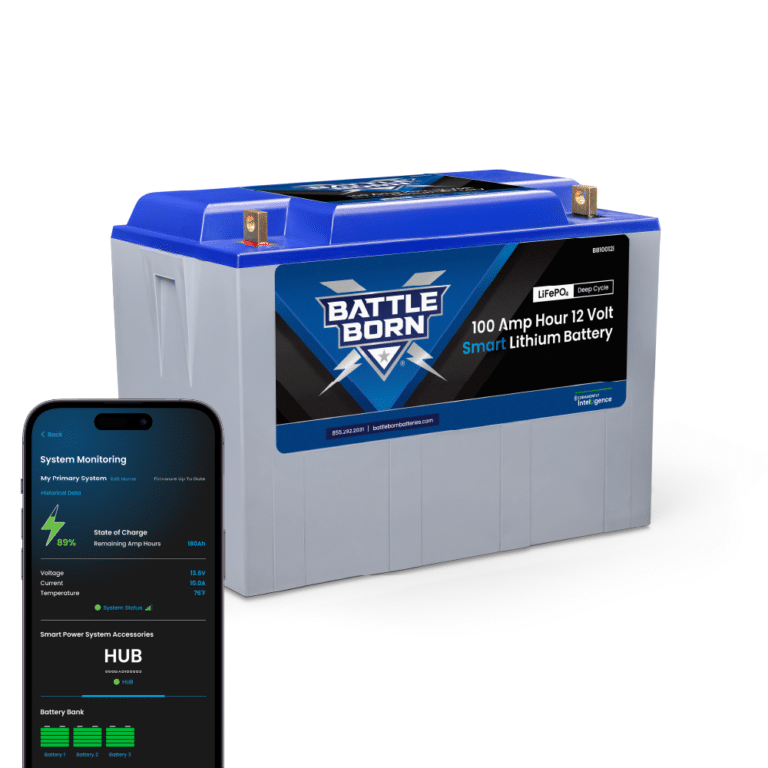

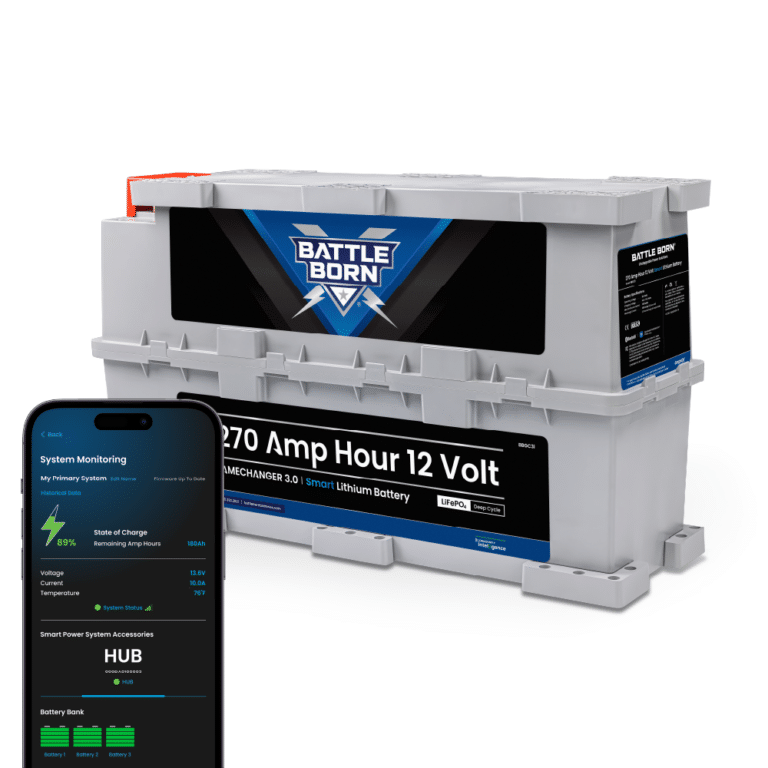




Ask a technical specialist now at 855.292.2831
Stay in the Know
2 thoughts on “Can RV Batteries Keep You Powered Overnight?”
I recently upgraded my 2021 Airstream Caravel travel trailer with 2, 12v 100 amp battleborn LiPO batteries. My trailer is equipped with a Li-compatible converter. In addition, I upgraded the Victron mpps solar charger monitor/controller with a victron VE direct Bluetooth dongle. Do I need to change any settings for the battleborn batteries, or does the victron device do that automatically? It looks like it is set to AGM; the other choices are “gel” deep discharge type 1 and gel deep discharge type 2. Is one of these describing the battleborn batteries?
Hi Tom. We recommend these charging parameters for our batteries:
Our charging parameters consist of the following:
Bulk/absorb = 14.2 – 14.6 V
Float = 13.6 V or lower
No equalization (or set it to 14.4 V)
No temperature compensation
Absorption time is 20 minutes per battery (if it’s an option)
12 V
Bulk/absorb 14.2 – 14.6 Volts (we usually recommend 14.4) float 13.6 Volts or lower
No equalization (or set it to 14.4 V), no temperature compensation and absorption time is 20-30 minutes per battery (if it’s an option).
24 V
Bulk/absorb 28.4 – 29.2 V (we usually recommend 28.8 V) float 27.2 V or lower
No equalization (or set it to 28.8 V), no temperature compensation and absorption time is 20 minutes per battery (if it’s an option).
If you need assistance with charging parameters or settings for a certain device, give us a call at (855) 292-2831 (M-F 8:00am-4:30pm (PST)) or email us at [email protected].